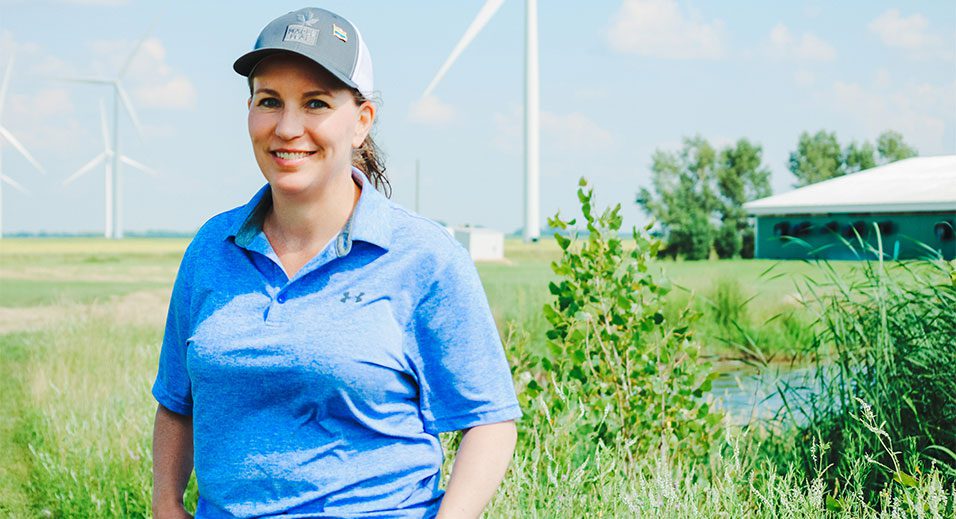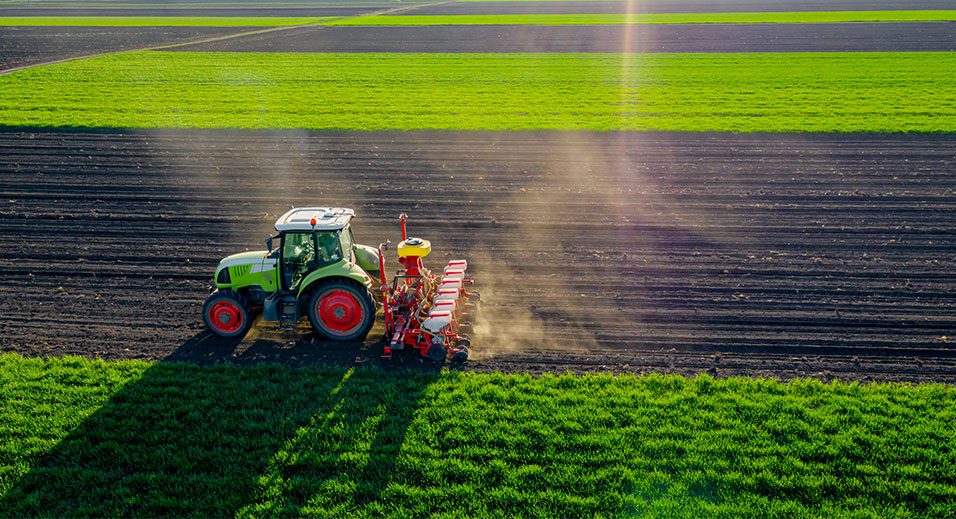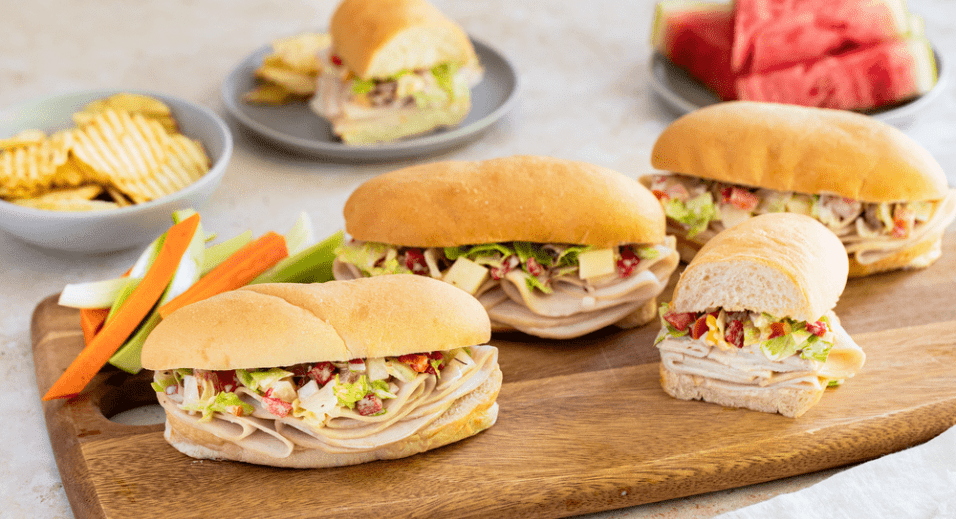Learn more about Tricia’s passion for sustainable farming at Maple Leaf Agri-Farms.
Tricia Schmalenberg is an Environment Manager based out of our Maple Leaf Agri-Farms (MLAF) in Landmark, Manitoba. Having been with Maple Leaf for the past 20 years, Tricia originally started off as part of our Six Sigma team developing strong project management skills. Today, she works on our capital, maintenance and environmental team and loves to make a real difference in our organization’s sustainability commitments.
With a background in engineering, Tricia notes that the skills she gained in Six Sigma are very transferable among a variety of areas within the business. Her previous experience includes working at window and furniture manufacturing facilities, but she’s happy to have found a home on our Agri-Farms team in Canada’s centre. Tricia currently manages the lagoon infrastructure projects as well as the nutrient recycling program.
Outside of her work on the farm, Tricia loves spending time at her family cottage, taking a book and a cup of coffee down to the dock on summer mornings. She’s also fond of paddleboarding, kayaking, and, in true Canadian spirit, loves playing hockey.
We sat down to chat with Sustainability Hero Tricia — read on for more!
What brought you to Maple Leaf Foods and what has made you stay?
When I first joined through the Six Sigma program, I was looking for a role where I could use my Industrial Engineering degree and work on process improvement projects. It was while on the Six Sigma team that I further developed my process improvement and project management skills, because the role requires someone who can work towards making things more efficient, and who looks for ways to waste less material and production time. Change management also comes into effect when it’s time to integrate aspects of the findings into the MLAF world.
What has made me stay is the commitment that Maple Leaf Foods has to our Leadership Values and sustainable practices. And, of course, the people! I work with wonderful people every day. The Agri-Farms team works hard every day of the year to care for our animals and land we live on. They are a hard-working team, quietly doing their part to produce food for the world.
What role does sustainability play in your job in Manufacturing?
Sustainability is at the forefront of my team’s responsibilities. We recycle all the manure from our hog farms by applying it as local organic fertilizer — this is a sustainability-focused practice that involves injecting manure into the soil which will eventually have crops planted in it. The manure provides valuable nutrients that supports crop growth and reduces the use of synthetic fertilizers. We are also responsible for the on-farm domestic recycling program, which is similar to household recycling of goods that come out of the farms like cardboard and cans, as well as recycling of organic material from the farm. This is all done while making sure we meet and exceed environmental regulations for manure storage and nutrient management.
What does sustainability at Maple Leaf Foods mean to you?
To me, sustainability at our organization means continuously finding better ways to do things every day. This includes using less, minimizing waste, and making sure that what we are doing can be sustained long-term for the good of the communities that we live in and the planet we live on.
How do you practice sustainability in your everyday life – inside and outside of work?
I subscribe to a local Community Supported Agriculture (CSA) where you get a box of locally produced products weekly — whatever is in season and harvested by the farmer you’re buying it from. And I shop at local vegetable markets to reduce the distance my produce must travel. Both of these activities help me buy more local product directly from farmers.
We also compost our organic waste at home, and I belong to a buy-nothing group to pass forward items that I no longer need. I have a little garden and fruit trees to supplement our groceries and I’m slowly turning my yard into a food productive space so that I can make use of my own plot of land rather just having a patch of grass. I bring my own reusable containers to the bakery and butcher to reduce my waste.
Are there any sustainability projects you’re currently working on that you can share details about?
I am currently working on the Biogas Project! The goal of this project is to capture the methane released from hog manure and convert it into a renewable natural gas. After the biogas is captured, the manure would continue to be used as a local organic fertilizer. We started this project about two years ago and there were two phases to it: first was to see if this was feasible for our company, the second phase is preliminary design and development of the business case. The Biogas Project is important to Maple Leaf Foods because it will have a big impact on our overall CO2 emissions by using hog manure and turning it into a valuable and renewable gas source.
What do you hope for the future of sustainability at Maple Leaf Foods?
I hope Maple Leaf Foods continues to propel forward in sustainable agriculture practices and responsible resource management. It is really refreshing to work for a company that recognizes their responsibility to the environment in addition to creating shared value for all.



